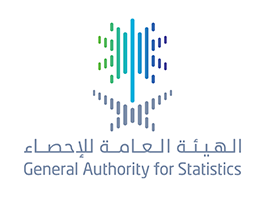Last update 1 / 06 / 2017
Recommendations

First: Recommendations to improve efficiency of statistical entities:
- Capacities of statistical entities and national organizations shall be improved in addition to employees' capabilities;
-
National statistical entities shall be upgraded by means of:
- New performance indicators that keep up with the regional economic and social changes;
- Statistical inter-organizational partnerships to keep reliable and inclusive data production integrated;
- New channels of multi-source community feedback on products;
- Active electronic connectivity projects to link government statistical departments (as the sources of data) shall be available with the official statistical entities; and
- Statistical entities shall be stimulated to develop programs of knowledge-transfer and experience-exchange between the entities on the one hand and the government units on the other hand.
Second: Recommendations to improve efficiency of statistical products:
- A status-quo analysis with special attention for never-been-used-before indicators shall be carried out while finding the matching mechanism for data provision;
- Statistical products shall be developed to meet definitions, perceptions, content, tools of display and accessibility which were arranged beforehand with concentration on applications' interactive features;
- Data quality shall be improved to be inclusive and to be published on a schedule to reap its developmental benefits;
- Gaps exist in data shall be bridged to meet the statistically requirements at local, regional and international levels;
- National indicators of statistics shall match that of the world;
- Statistical analyses (such as in-depth analysis) shall be reported to decision makers who are tasked with policy formulation and decision taking;
- Detailed information shall be widely published to cover surveys via all available digital channels;
- Geomechanics data shall be in place to link housing survey data which further provide precise information about various aspects of development; and
- Data shall be made available at different industries especially in finance to give a full picture about economy.
-
Big data shall be given more attention as follows:
- Big data-related subjects shall be added to the nation's statistical strategy;
- Cooperation with the international organization shall be boosted with regard to big data and commitment to the international standards;
- New legislative and legal frameworks shall be created to process big data;
- Big data-intrigued questions shall be subject of different studies and a role shall be played to data analysis and publishing; and
- Partnerships shall be formed between statistical entities and private sector to make the most of data.
Third: Recommendations to follow up indicators of sustainable development:
- National and regional teams work shall be formed to follow up progress of the sustainable development indicators; and
- The environment sustainable development goals shall be marked important and added to statistical entities' task list.
Fourth: Recommendations to activate statistics technology use:
- An eye shall be on the development of technologies to use to the best advantage statistical data collection, publishing and analysis;
- The huge potentials of telecommunication operators shall be used in collecting and storing data on cloud computers;
- Unconventional techniques of statistics capture and publishing for the end-user-oriented studies in light of data revolution and advanced social media networks; and
- A population register shall be established to create links between the housing data and addresses from one side and educational, health and economic data from the other side by making the most of tools, technical, cutting-edge technical programs and databases at different ministries.
Fifth: Recommendations to raise statistical awareness:
- National statistical centers shall work with Gulf Statistics Center (GCC-STA) to count Statistical Knowledge as a key element of strategic planning and future projects;
- Strategic partnerships shall be created by the GCC-STAT and the entities in concern (academia, media and private sector) to enhance statistical knowledge;
- Training programs shall be tailored to raise statistical awareness;
- Indicators shall be set to weigh statistical knowledge, to include all sectors and to react to the users' educational and professional levels;
- Data produced by statistical entities shall be transformed to optical molds suitable for all segments of the society; and
- Data publishing tools shall be developed as per the modern models to create and present content.
Sixth: Recommendations to improve private sector efficiency:
- A statistical entity shall make the necessary coordination with other entities in processing big data to guarantee reliability and quality control verification;
- A study on formation of advisory boards shall be made and all segments of the statistical products users shall be involved;
- Relation between universities, research agencies, academic institutions and national statistic entities shall be boosted;
- Dialogue shall be held by policy makers, researchers and data users to get acquainted with the prioritizing process and data types.
Seventh: Recommendation to develop inter-Gulf statistical work:
- Multi-dimension mechanisms shall be developed to link national statistical entities with the GCC-STAT to guarantee consistency of strategic planning and future work projects among Gulf States;
- Cooperation between national statistic entities shall be boosted for qualification of nationals in the field of statistical and technical industries;
- Inter-GCC cooperation indicators shall be in place; and
- National statistical entities shall be monitored to develop its means for administrative records and respecting related international benchmarks.
